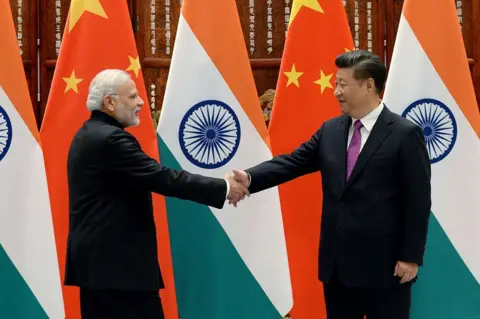In a recent military response to a tragic terrorist attack in India, the operation was dramatically named "Operation Sindoor." This label carries a heavy weight of cultural symbolism, particularly in relation to the grief experienced by women who have lost husbands due to violence—specifically, during the terrorist attack that took the lives of 26 individuals in Kashmir. Prominent among these women is Himanshi Narwal, whose poignant image with her murdered husband has become a striking representation of the tragedy.
In Hindu tradition, sindoor is a vermilion powder used by married women to denote their marital status, typically depicted in their hair partings or on their foreheads. Upon becoming widowed, this powder is often wiped away, signifying loss and sorrow. Following the horrific events of April 22, many women found their identities irrevocably altered as they were left widowed amidst a surge of sectarian violence, targeting primarily Hindu individuals.
The Indian government’s choice to label the military operation "Operation Sindoor" serves as a clear message of vengeance aimed at honoring and protecting widowed women. On platforms like social media, the military spectacularly announced their retaliatory strikes, accompanied by a striking visual of spilled sindoor that mirrored the color of spilled blood, intensifying the emotional impact.
However, this military branding was not without its detractors. Feminist voices have raised alarms about the implications behind using sindoor within a nationalist framework, arguing that such perspectives often prioritize a male-dominated understanding of society, wherein women are viewed merely as symbols of loss and icons for men to rise in defense. V. Geetha, a feminist historian, emphasized that women are often cast in traditional roles—either as figures in need of protection or as motivating forces to spur male heroism.
As India navigates its complex historical narratives and current sociopolitical landscape, "Operation Sindoor" serves as a stark reminder of the intersection between nationalism, gender norms, and the realities of those most affected by violence—namely, women whose lives are irrevocably altered by grief. As discussions continue, it remains essential to critically examine the connotations of such operations and the messages they send across the country.





















